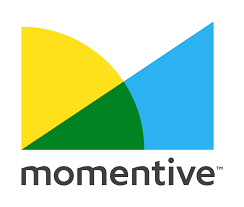Category: Software IPO Research
Momentive Global (NASDAQ: MNTV)
 Momentive Global (NASDAQ: MNTV), formerly SurveyMonkey, is a leading provider of cloud-based survey software products that enable companies to better engage with customers and employees. Founded as SurveyMonkey in 1999, and based in San Mateo, California, the company is best known for its flagship SurveyMonkey customer feed-back software. An out-of-favor stock, Momentive Global has had a storied history since its IPO five years ago.
Momentive Global (NASDAQ: MNTV), formerly SurveyMonkey, is a leading provider of cloud-based survey software products that enable companies to better engage with customers and employees. Founded as SurveyMonkey in 1999, and based in San Mateo, California, the company is best known for its flagship SurveyMonkey customer feed-back software. An out-of-favor stock, Momentive Global has had a storied history since its IPO five years ago.
The company, then known as SurveyMonkey, priced its 15 million share IPO at $12 per share on the NASDAQ on September 25th 2018. The underwriters subsequently exercised their option to purchase an additional 2.25 million shares. The IPO was led by J.P. Morgan Securities, Allen & Company and BofA Merrill Lynch. Credit Suisse, UBS, Wells Fargo, SunTrust Robinson Humphrey, Code Advisors, Foros, JMP Securities and LionTree Advisors.
Momentive Global is best known for its namesake SurveyMonkey cloud-based questionnaire software that is primarily used for customer feed-back, TechValidate, a marketing content automation software solution, and SurveyMonkey Engage, which is focused on internal employee surveys and feed-back.
In June of 2021, the company changed its name to Momentive Global, reflecting its wider range of customer and employee experience management offerings, which include the addition of market research services. In October of 2021, the company announced that it would be acquired by Zendesk in an all-stock transaction for roughly $4.1 billion. With the intent to expand from customer service to a broader market of global customer intelligence, Zendesk, at the time, appeared to be particularly interested in the SurveyMonkey portion of the business. However, the deal was ultimately rejected by Zendesk shareholders, and Zendesk was forced to terminate the transaction. Zendesk was ultimately taken private in June of last year in a $10 billion acquisition by an investor group led by Permira and Hellman and Friedman.
Today, more than 345,000 organizations around the world use one or more of MNTV’s products, and the company notes that it has over 17 million active users that draw on market insights, brand insights, as well as employee, customer, and product experiences. Over 95 percent of the Fortune 500 use a Momentive product.
In a measure to return cash to shareholders, the company initiated a share repurchase plan in February of 2022 with the intent to repurchase up to $200 million of its common stock. Through the first three quarters of last year, Momentive had repurchased $84 million. At the end of Q3, MNTV held $193 million in cash along with $183 million in debt, for a net cash position of $183 million. The company’s DSOs are 23 days, a reasonable level, attesting to the short-term nature of most of its customer contracts, which are said to be of a duration of one year or less. The company announced an 11 percent workforce reduction, coinciding with its Q3 2022 earnings results. Last month, the company appointed a new CFO, Rich Sullivan, whose experience includes stints at Dreamworks, Twitter, and AT&T.
Snowflake- an Inflated Sense of Self?
 Snowflake (NYSE: SNOW), a cloud-based data analytics company, is a recent addition to our Battle Road IPO Review Software sector coverage. The company was founded in 2012 by Benoit Dageville and Thierry Cruanes, former data architects at Oracle (NYSE: ORCL). A third co-founder, Marcin Zukowski, was a co-founder of Vectorwise. The company is based in San Mateo, California. Consensus estimates call for revenue of $566 million for its current fiscal year end January 2021, followed by revenue of $1.08 billion, in FY’22. EPS during the same period is expected to be a loss of $1.00 in FY’21, followed by a loss of $0.90 the following year. At a recent share price of $250, the company’s market cap is a rather astonishing $69 billion.
Snowflake (NYSE: SNOW), a cloud-based data analytics company, is a recent addition to our Battle Road IPO Review Software sector coverage. The company was founded in 2012 by Benoit Dageville and Thierry Cruanes, former data architects at Oracle (NYSE: ORCL). A third co-founder, Marcin Zukowski, was a co-founder of Vectorwise. The company is based in San Mateo, California. Consensus estimates call for revenue of $566 million for its current fiscal year end January 2021, followed by revenue of $1.08 billion, in FY’22. EPS during the same period is expected to be a loss of $1.00 in FY’21, followed by a loss of $0.90 the following year. At a recent share price of $250, the company’s market cap is a rather astonishing $69 billion.
Snowflake debuted on the New York Stock Exchange at an opening price of $120 on September 18th in a 28 million Class A common stock offering. In an unusual twist of events, Snowflake and its underwriters allowed Salesforce.com and Berkshire Hathaway each to acquire over $250 million of stock in private placements, just before the IPO. In addition, Berkshire Hathaway acquired the 4 million share stake of a former CEO of the company. All told, the company raised nearly $4 billion, making it the largest-ever Software IPO. Following the transaction, there are roughly 36 million Class A shares, and 240 million Class B shares, for a total of 276 million shares outstanding. The deal was led by Goldman Sachs, Morgan Stanley, J.P. Morgan, and befitting the size of the offering, 20 additional investment banks.
Snowflake offers a native cloud software platform for data analytics, harnessing the public clouds of Amazon.com (AWS), Microsoft Azure, and Google Cloud. Like all native cloud software companies, whose software does not run on customer owned hardware and internal IT infrastructure, Snowflake can claim, with some accuracy, that its approach requires “near zero” customer maintenance. Snowflake places a great deal of emphasis on its data architecture, which is comprised of storage, compute, and cloud services. Thus, computing tasks are divided among the layers, making its overall operation more efficient. In doing so, Snowflake purports to provide customers with a “single source of truth to drive meaningful business insights,” among other benefits.
The company has grown rapidly, recording revenue of $97 million for the year ended January 31, 2019, tripling the following year to $265 million. Rather astoundingly, the company’s net loss from operations widened from $178 million to $349 million during the same period. The company claims over 3,000 customers as of July 31, 2020, double that of a year ago, and among them, 146 of the Fortune 500. Over 50 customers generated more than $1 million in revenue. Today, roughly 12 percent of sales comes from outside of the U.S.
As a relative new kid on the block, Snowflake has targeted the large installed base of customers of traditional data warehouse and analytics software vendors, including IBM, Oracle, and Teradata. Snowflake is often able to drift in below the radar by selling to a small group of users for a new analytics project. If it demonstrates value to the initial workgroup, Snowflake can then expand into other departments, assuming the customer is willing to idle or part ways with their existing data architecture and infrastructure. Snowflake has been among the pioneers in so-called usage based pricing, wherein customers pay, for example, according to the number of queries that they run, rather than a fixed yearly subscription.
Competition includes Google (NASDAQ: GOOGL), which offers BigQuery, an analytics package exclusive to the Google Cloud, as well as Amazon.com’s Redshift. It should be noted that Oracle (NYSE: ORCL) and Teradata (NYSE: TDC) have placed a great deal of emphasis on their own cloud analytics offerings in recent years, though they face the challenge of fending off attacks on their respective installed bases as cloud-only vendors like Snowflake seek to siphon off funds for new projects.
Snowflake has relatively limited customer concentration, with Capital One Services, accounting for 17 percent, and 11 percent, respectively, during the fiscal years ended January 31, 2019, and January 31, 2020.
